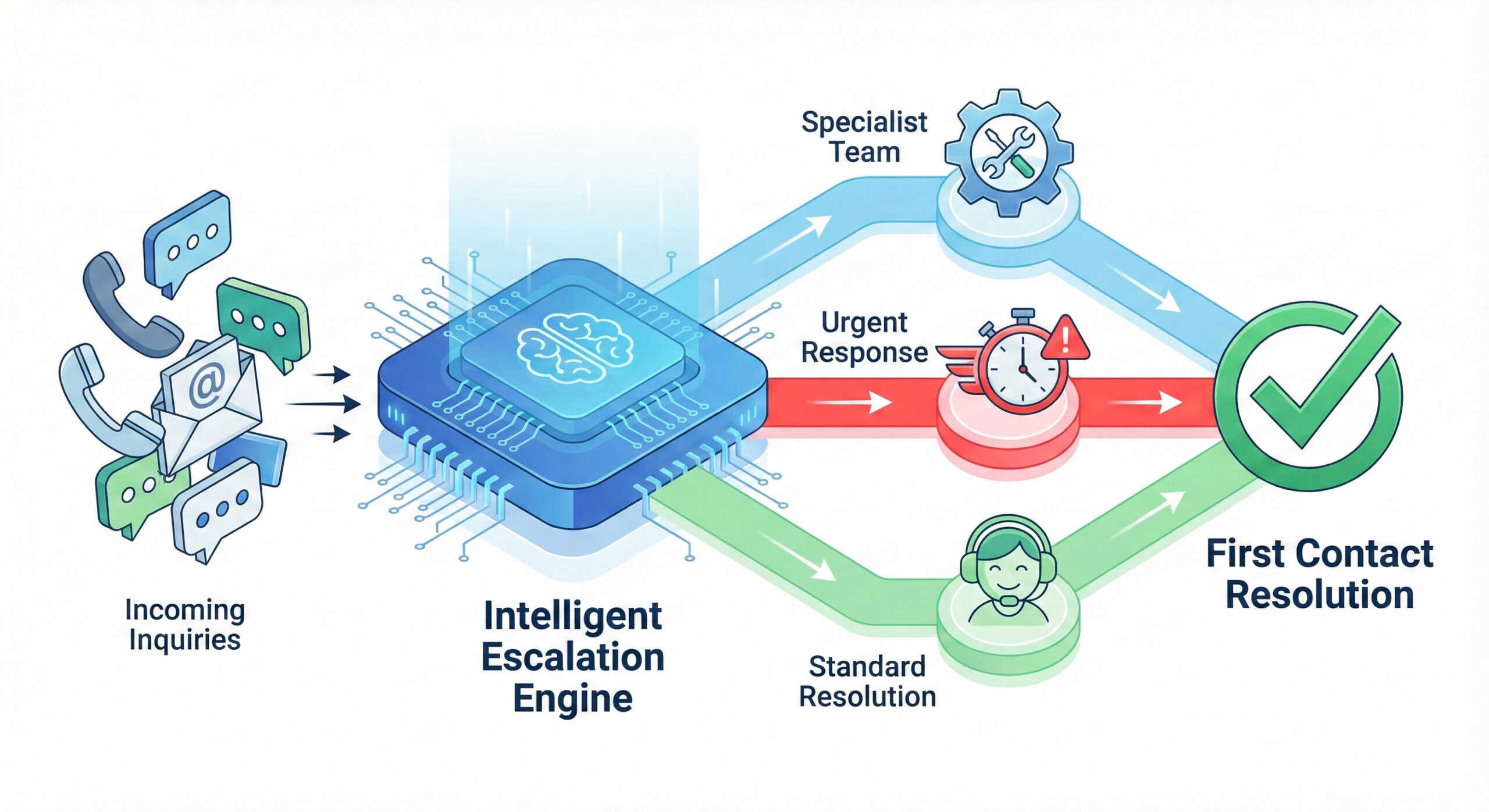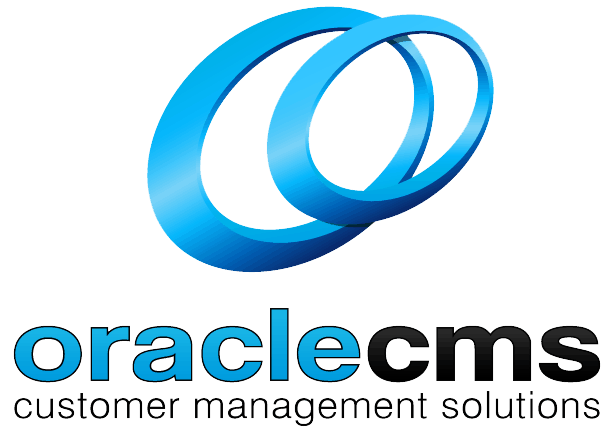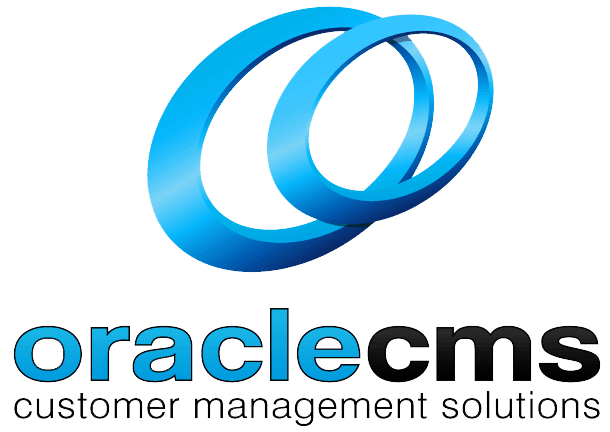
Reducing First Contact Resolution Failures with Intelligent Escalation Paths
First Contact Resolution (FCR) is one of the clearest indicators of customer satisfaction and operational efficiency, yet many organisations still struggle to maintain strong performance in this area. Repeat contacts increase workload, tie up advisors, delay outcomes and weaken customer trust. For Australian SMEs, the pressure is greater because smaller teams feel the effects quickly when call volumes rise. Intelligent escalation paths provide a structured way to address common causes of FCR failure by directing enquiries to the correct person or system early in the interaction. These improvements also strengthen the outcomes delivered through professional contact centre services, ensuring customers reach the right support from the outset.
Understanding the Root Causes of FCR Failure
Many FCR failures stem from issues with information flow, poor routing, unclear ownership or operational inconsistencies. In many contact centres, enquiries are sent to the wrong advisor, handled with incomplete context or delayed because staff need to locate information spread across several systems. These inefficiencies turn simple enquiries into multi-step interactions.
SMEs face additional challenges because small teams often perform multiple roles without dedicated specialists. When responsibilities are unclear or processes differ by advisor, customers receive inconsistent handling. Legacy systems also contribute by forcing staff to work with outdated or disconnected information. Understanding these root causes is essential before redesigning escalation pathways.
What Intelligent Escalation Actually Means
Intelligent escalation is more than just sending an enquiry to the next available supervisor. Traditional escalation moves enquiries upward only when an advisor gives up, often causing delays. Intelligent escalation uses predefined rules, customer context, skill mapping and real-time data to escalate enquiries earlier, faster and more accurately.
Instead of viewing escalation as a last resort, this approach treats it as a structured process that ensures customers reach the most suitable resource without waiting for trial-and-error attempts. Intelligent escalation adapts based on channel, intent, urgency and customer history, resulting in more efficient resolutions.
Key Components of an Effective Intelligent Escalation Path
- Context-aware routing
- Skill-based assignment
- NLP-driven intent identification
- Automated escalation triggers
- Advisor availability monitoring
Each element removes uncertainty and ensures enquiries are routed correctly the first time. Skill-based mapping ensures only capable advisors receive certain enquiry types, while NLP systems detect intent accurately across voice and digital channels. Automated escalation triggers prevent high-priority issues from being stuck in slow queues.
How Intelligent Escalation Improves FCR Performance
Intelligent escalation improves FCR rates by reducing misrouting and helping advisors access complete information immediately. When an enquiry reaches someone who can solve it the first time, customers avoid the frustration of explaining their issue repeatedly. Escalation logic reduces unnecessary transfers and delays, especially in complex cases where specialist knowledge is required.
Over time, this structure reduces operational strain, builds advisor confidence and creates more predictable workloads across teams. SMEs benefit especially because efficient escalation reduces the risk of bottlenecks, even when teams are small.
Integrating Intelligent Escalation with Existing Contact Centre Workflows
Many SMEs assume that intelligent escalation requires major system upgrades, but modern frameworks can be layered onto existing tools. Integration often involves linking CRMs, ticketing systems, IVR flows and communication channels into a unified routing structure.
The first step is mapping current workflows, identifying recurring failure points and clarifying which teams own which tasks. Once mapped, escalation rules can be introduced gradually. Incremental improvements make it easier for SMEs to adopt structured routing without needing full-scale transformation.
Real-World Use Cases Where Intelligent Escalation Prevents Repeat Contacts
Intelligent escalation proves effective across a wide range of everyday SME scenarios. Appointment changes, account updates, payment follow-ups and delivery enquiries all benefit when routing logic directs customers to someone authorised to take immediate action.
- Retail reduces repeat calls related to returns and delivery checks
- Healthcare improves handling of appointment changes and referral questions
- Field service companies escalate urgent job requests based on time and severity
- Financial services ensure compliance queries reach trained staff
Overcoming the Most Common Implementation Challenges
Challenges typically arise when information is incomplete, responsibilities are unclear, or skill mapping is not properly defined. Escalation rules rely on accurate data, so SMEs must ensure customer details are captured consistently. Internal processes also need to be standardised so advisors understand when and how escalations should occur.
Skill mapping can be particularly difficult in small teams where staff handle many types of interactions. Without clear owner assignments, routing becomes inconsistent. These challenges can be addressed with proper documentation, role clarity and practical training.
Why Outsourcing FCR and Escalation Management Benefits SMEs
Outsourcing escalation management allows SMEs to benefit from established systems, specialist teams and reliable routing frameworks. External providers already have structured processes and advanced tools such as intent classification and multi-channel routing. Outsourcing reduces the burden of maintaining internal escalation processes and provides access to 24/7 coverage, which improves FCR rates by removing delays caused by limited availability.
For many SMEs, outsourcing resolves resource constraints and improves consistency without increasing internal workload.
Practical Checklist for Designing Intelligent Escalation Paths
- Have all enquiry types been mapped with clear owners?
- Are escalation steps documented and consistently followed?
- Is customer data captured cleanly at the first point of contact?
- Are advisors trained on when and how to escalate?
- Are skill-based routing rules accurate and up to date?
- Are escalation outcomes reviewed regularly to identify gaps?
Conclusion
Intelligent escalation paths help SMEs reduce FCR failures by directing enquiries to the right advisor earlier and more accurately. By combining structured processes, reliable data and adaptive routing logic, businesses strengthen customer experience and reduce operational pressure. Whether implemented internally or supported through outsourced contact centre services, intelligent escalation ensures smoother workflows and faster resolutions.
FAQs
Q1: What causes most First Contact Resolution failures?
A1: Most failures occur because enquiries are misrouted or handled with incomplete information, forcing customers to call back for clarification.
Q2: Is intelligent escalation difficult to implement?
A2: It can be introduced gradually. SMEs can improve FCR significantly by clarifying responsibilities and applying basic routing rules before adopting advanced tools.
Q3: Does intelligent escalation replace traditional tier-based escalation?
A3: It enhances it by using context, skills and predefined rules to ensure enquiries reach the most capable advisor from the beginning.
Q4: How does intelligent escalation improve customer satisfaction?
A4: It reduces the need for customers to repeat themselves and speeds up resolution by connecting them with someone who can resolve the issue immediately.
Q5: Can outsourcing help improve FCR performance?
A5: Yes. Outsourced teams provide structured escalation frameworks, trained advisors and advanced routing tools that improve consistency and reduce delays.



